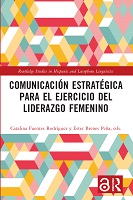Chapter 1 El uso del lenguaje inclusivo como herramienta de desprestigio de la imagen pública de las políticas españolas
Proposal review
Abstract
La prensa de referencia, además de situar los temas en la agenda pública e informar sobre ellos, enfatiza determinados rasgos de estos temas y de sus agentes. La forma continuada en la que se expresan los medios de comunicación y la manera en la que los significados acumulativos se reiteran ayuda a conformar su orientación ideológica. El presente estudio tiene como objetivo analizar los titulares periodísticos que se generan en torno al uso público del denominado lenguaje inclusivo o lenguaje no sexista que hacen tres políticas feministas de izquierda. Se trata de un debate, no lingüístico, sino ideológico y político, donde impera la descortesía. Se demuestra cómo la manera de construir los titulares, la selección léxica y los mecanismos discursivos empleados influyen en el desprestigio de la imagen pública de Carmen Calvo, Irene Monero y Yolanda Díaz. Para llevar a cabo el objetivo fijado se ha usado como herramienta metodológica el Análisis del Discurso y la Lingüística Pragmática y se ha analizado un corpus de 167 titulares de prensa digital española publicados desde febrero de 2018 hasta marzo de 2022, obtenidos de la base de datos DISMUPREN (https://dismupren.com/).
Keywords
Comunicación estratégica; Female leadership; Gender linguistics; liderazgo femenino; Spanish discourse analysis; Spanish language studies; Spanish LinguisticsDOI
10.4324/9781003305224-3ISBN
9781032304687, 9781032304694, 9781003305224Publisher
Taylor & FrancisPublisher website
https://taylorandfrancis.com/Publication date and place
2023Grantor
Imprint
RoutledgeClassification
Language teaching and learning


 Download
Download